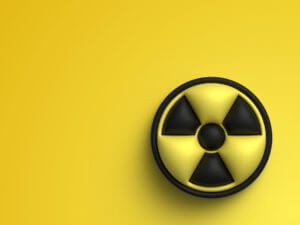
One of the major health concerns of many people is exposure to radiation. This is especially true for those who have lived near nuclear testing sites or radioactive waste facilities. Some people, also known as Downwinders®, have a much higher risk of developing cancer. Knowing how radiation affects the body and recognizing the early warning signs of cancer are crucial. If you are a Downwinder®, this article will help you spot key signs of cancer from radiation exposure.
Top Signs of Cancer from Radiation Exposure
Radiation exposure can damage cells in the body, causing abnormal growths that may develop into cancer. The effects can be gradual, with symptoms appearing years after the exposure occurred. Here are some of the most prominent cancer types and their warning signs linked to radiation exposure:
1. Thyroid Cancer
The thyroid gland is highly sensitive to radiation. This makes thyroid cancer one of the most common types linked to exposure. The symptoms of thyroid cancer may develop slowly over time, so regular check-ups with a doctor are important.
Signs to watch for include:
- A lump or swelling in the neck
- Difficulty swallowing or breathing
- Persistent hoarseness or changes in voice
- Pain in the neck or throat area
- Swollen lymph nodes in the neck
2. Leukemia
Leukemia is a cancer of the blood and bone marrow. It is another cancer that can result from radiation exposure. This is because radiation affects the cells that create blood in the bone marrow. Early symptoms include the following:
- Severe fatigue and weakness
- Bruising or bleeding easily
- Persistent fever or chills
- Unexplained weight loss
Radiation can also weaken the immune system, making it easier to get sick often. Leukemia symptoms can overlap with other conditions. This makes it important to discuss any unusual changes with a doctor.
3. Lung Cancer
Individuals exposed to radiation also have an increased chance of getting lung cancer. The risk increases if a person inhales radioactive particles.
Warning signs of lung cancer include:
- A persistent cough that does not improve
- Shortness of breath or wheezing
- Chest pain, especially when inhaling deep breaths or when coughing
- Unexplained weight loss or loss of appetite
- Coughing up blood or phlegm containing blood
These symptoms should prompt immediate medical attention.
4. Breast Cancer
Women exposed to radiation, particularly at a young age, may face a higher risk of breast cancer. Regular self-exams and mammograms are essential steps for early detection.
Key symptoms include the following:
- A lump in the breast or underarm
- Changes in the size or shape of the female breast
- Nipple discharge, especially when bloody
- Skin changes such as dimpling or redness
- Pain in the breast or nipple area
5. Skin Cancer
Direct exposure of the skin to radiation can lead to skin cancer. This is especially common for body areas directly exposed during radiation exposure events. Regular dermatological exams may help catch skin cancer early.
Symptoms to look out for include:
- A new mole or a change in an existing mole
- Unexplained sores that do not heal
- Patches of skin that become scaly or red
- Skin lesions that itch, hurt, or bleed
6. Bone Cancer
Radiation exposure has been linked to specific cases of bone cancer. This is due to its effect on the bones and surrounding tissues. It is critical to seek medical consultation if you experience any symptoms of bone cancer.
Signs of bone cancer include the following:
- Persistent bone pain, especially at night or during activity
- Swelling near a bone
- Fractures that occur more easily than expected
- Fatigue unrelated to physical activity
- Unintended weight loss
How Downwinders® Can Get Help
It is important to know that Downwinders® are not alone. These resources are specifically for Downwinders® who may have been exposed to radiation from nuclear testing. This includes medical care and legal assistance.
Medical Screenings and Testing
Early detection is key to managing cancer effectively. Downwinders® should schedule regular health check-ups. It is also important to ask your doctor about screenings for cancers linked to radiation exposure. Inform your healthcare provider about your history of radiation exposure. This can influence which tests are appropriate.
Radiation Exposure Compensation Programs
The federal government offers Downwinder® compensation programs like the Radiation Exposure Compensation Act (RECA). These programs assist Downwinders® who may have been exposed to radiation through nuclear testing. RECA provides financial assistance to individuals who qualify. If you are unsure about eligibility, contact the Cancer Benefits Center for Downwinders® for help.
Education and Awareness
Learning about radiation exposure and its associated risks can empower you. By understanding these things, you can make informed decisions about your health. Many organizations provide valuable resources, including guides and workshops for Downwinders®.
Support Networks and Advocacy
Joining a support group for Downwinders® can offer emotional support and practical advice. Advocacy groups also work to raise awareness and fight for policies that benefit affected communities.
If you need personalized assistance, the Cancer Benefits Center for Downwinders® can help you take action. For support, call us toll-free at 1 (855) 631-7197 or simply complete our online contact form.
Get Help for Signs of Cancer from Radiation Exposure
Radiation exposure should never be taken lightly, as the potential long-term effects on your health can be severe. It is important to know the signs of cancer from radiation exposure and access resources for Downwinders®. This way, you can stay ahead of potential health issues. Remember that timely detection significantly improves treatment outcomes.
Are you or a loved one considered a Downwinder® and need help navigating your health or compensation options? Reach out to the Cancer Benefits Center for Downwinders®. Call us at 1 (855) 631-7197 or visit our website to fill out our contact form. Do not wait—your health is worth it.
We look forward to serving you!
Sources:
https://my.clevelandclinic.org/health/diseases/10985-ultraviolet-radiation
https://my.clevelandclinic.org/health/diseases/12194-cancer
https://www.mayoclinic.org/diseases-conditions/cancer/symptoms-causes/syc-20370588
 Downwinders® Claims
Downwinders® Claims